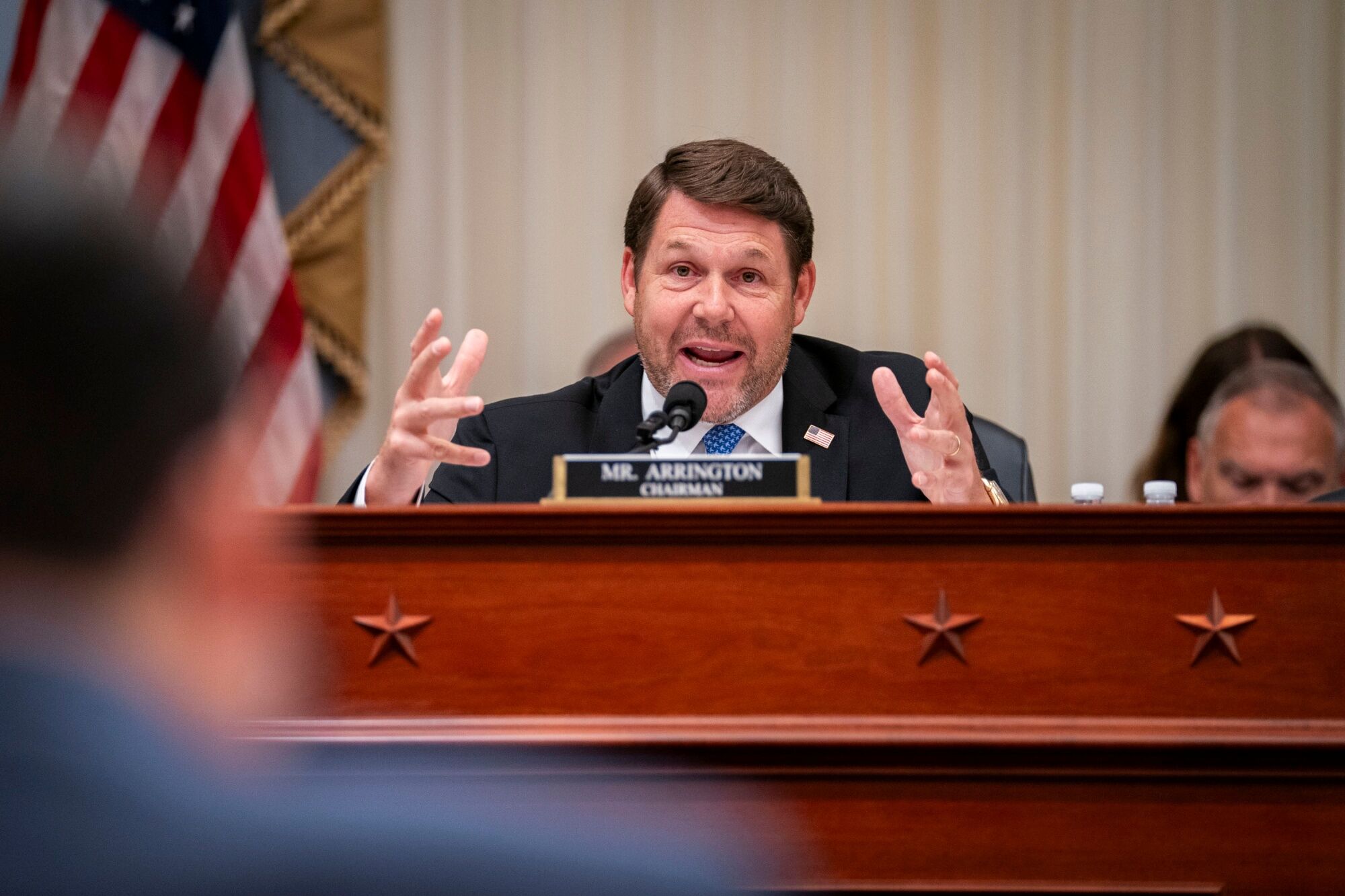Trump's Tax Plan Moves Forward as GOP Strikes Deal for Speedier Medicaid Reductions
(The News Pulse) -- A key House committee advanced President Donald Trump’s giant tax and spending package after Republican hardliners won agreement from party leaders to speed up cuts to Medicaid health coverage.
The House Budget Committee approved the legislation late Sunday night after a weekend of negotiations with four ultraconservatives on the panel who on Friday joined with Democrats to reject the legislation. Those hardliners instead abstained on Sunday and voted present, allowing the bill to advance.
Representative Chip Roy of Texas, one of the four hardliners, said party leaders agreed to move up Medicaid work requirements expected to kick millions of beneficiaries off the health coverage program and more quickly phase out clean energy tax breaks.
But Roy still expressed dissatisfaction, saying the measure “does not yet meet the moment.” Roy and the House Freedom Caucus said in posts on X they are hoping to win additional cuts before the bill comes up for a vote on the House floor.

Budget Committee Chairman Jodey Arrington said he didn’t know what changes the party leaders had agreed to make. The changes will be added later, before the legislation is voted on by the full House.
House Speaker Mike Johnson told reporters “there’s a lot more work to do” on the tax bill but said he would push on Medicaid work requirements “to make it happen sooner, as soon as possible.” The work requirements had been set to take effect in 2029 in the draft legislation.
There is strong support among Republicans for the tax cuts at the core of the package, providing an impetus to work out political differences.
However, the House committee’s initial refusal of the bill and the subsequent two-day standoff represented a humiliating blow to Republican leadership concerning their primary policy objective. This situation underscored intense disagreements within the party ranks regarding various aspects of the extensive multi-trillion-dollar budget plan.
On Friday, Trump lashed out at the ultraconservatives on social media following their blockade of the legislation, charging them with "posturing" over their demands.
Further challenges might arise as the bill advances towards a vote in the entire House and subsequently undergoes examination in the Senate. There, the more substantial reductions to Medicaid proposed by the hardliners along with additional clauses could come under close inspection, possibly encountering strong resistance.
Republican lawmakers from states with high taxation, like New York, New Jersey, and California, have warned that they will oppose the bill unless they receive an increased cap on the federal income tax deduction for state and local taxes.
Fears of a deficit and long-term interest rates nearing 5% have intensified efforts by the party’s conservative wing to advocate for more substantial reductions in governmental expenditures. These apprehensions came into sharp focus on Friday night when Moody’s downgraded the U.S. credit rating from Aaa to Aa1.
Should the House manage to pass their version of the bill, they will still face numerous hurdles in the Senate.
Senator Josh Hawley, a Republican from Missouri, stated that he will oppose the proposed cuts to Medicaid benefits included in the House bill. Instead, he argues that reducing prescription drug costs could be more effective in achieving financial savings.
The proposed Medicaid reductions in the bill might also encounter doubt from centrist Republican senators such as Susan Collins from Maine and Lisa Murkowski from Alaska — who played crucial roles in thwarting Trump’s attempt to dismantle the Affordable Care Act back in 2017.
Other senators, such as Thom Tillis from North Carolina—which boasts numerous billion-dollar green energy initiatives either completed or underway—prefer a slower reduction in the clean-energy tax breaks introduced under the Biden administration.
When first proposed by Republican members of the House, numerous clean energy incentives were set to start phasing out in 2029.
The tax breaks, encompassing incentives for wind and solar power, nuclear power, and various other forms of clean energy, have become prime targets for legislators aiming to fund the extension of Trump’s reductions.
Other incentives, such as the tax break for electric cars, would generally begin phasing out towards the end of 2025.
--Assisted by Erik Wasson and Ari Natter.
(Updated with remarks from Johnson, additional context starting in the sixth paragraph)
Top Stories from The News Pulse
- How a Freeway Transformed Into San Francisco’s Latest Park
- America, ‘Nation of Porches’
- Maryland's Credit Rating Is Reduced; Governor Attributes It to President Trump
- New Jersey Transit Train Operators Go OnStrike, Causing Chaos for Commuters Heading to NYC
- New York City Travelers Prepare for Disruption as NJ Transit Strike Threatens Turmoil
©2025 The News PulseL.P.
Post a Comment for "Trump's Tax Plan Moves Forward as GOP Strikes Deal for Speedier Medicaid Reductions"
Post a Comment